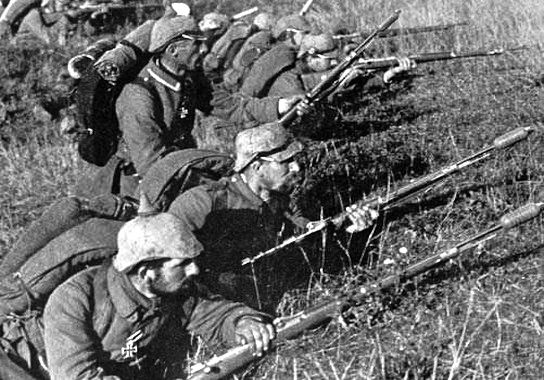A Bad WWI Counterfactual

David Frum speculates about what would have happened if WWI had been won by the Central Powers:
Even if the Germans had traded concessions in the West to preserve their gains in the East, the kaiser’s Germany would have emerged from such an outcome as the dominant power on the continent of Europe. The United States would have found itself after such a negotiated peace confronting the same outcome as it faced in 1946: a Europe divided between East and West, with the battered West looking to the United States for protection. As in 1946, the East would have been dominated by an authoritarian regime that looked upon the liberal and democratic Anglo-American West not just as a geopolitical antagonist, but as an ideological threat.
This is poor counterfactual history, which isn’t surprising since it’s based on a poor reading of the history of WWI and its aftermath. For one thing, Frum greatly exaggerates the ideological implications of the war’s outcome. He assumes that an Allied victory boosted the fortunes and reputation of democratic government and that a victory by the other side would have had the opposite effect. Germany and Austria-Hungary had already gone through some significant democratization and had some measure of constitutional government before the war began. Like all belligerents in WWI, these states became very authoritarian during the war, but that doesn’t tell us very much. It ignores the enormous social and political upheavals that the war caused to assume that the Central Powers would have been able to avoid making significant political changes at home in the post-war period.
Since we know the victors of WWI expanded their franchises and made their governments somewhat more democratic after the war, why would something similar not have happened on the other side? It is far too easy to assume that the governments on the other side of the war would have been able to rely on mass mobilization during the war and then impose a system after the war that was more authoritarian than the one that had preceded it. In the meantime, a victorious Germany and Austria-Hungary would have been in a position to aid White Russian forces against the Bolsheviks in the Russian Civil War, which could have meant a much smaller and weaker Soviet state or the outright defeat of the Bolsheviks. The absence of an established communist state from the European scene would have significantly reduced the appeal of the authoritarian and hyper-nationalist political movements that exploited anticommunist sentiment to their advantage. Even if that didn’t encourage more liberal and democratic political developments, it would have greatly weakened some of their worst enemies.
It is possible that defeated Allied nations would have been the ones to turn toward authoritarian ideologies, since they would be the ones most inclined to find fault with the governments that had led them to defeat, but that also seems somewhat unlikely. In any case, that isn’t what worries Frum. Frum imagines a very improbable Cold War avant la lettre between America and Imperial Germany, which is a product of his assumption that WWI was defined by a sharp ideological rivalry. No doubt Allied governments wanted their publics to believe this, but we shouldn’t take their war propaganda as a guide. There is no way of knowing how the U.S. would have chosen to react to a victorious Germany after WWI, but it seems highly unlikely that it would have embarked on a costly effort to “contain” or oppose Germany, much less fight a new war against them. It is far more likely that the U.S. would have gone back to being the neutral power that it should have been all along.
Comments